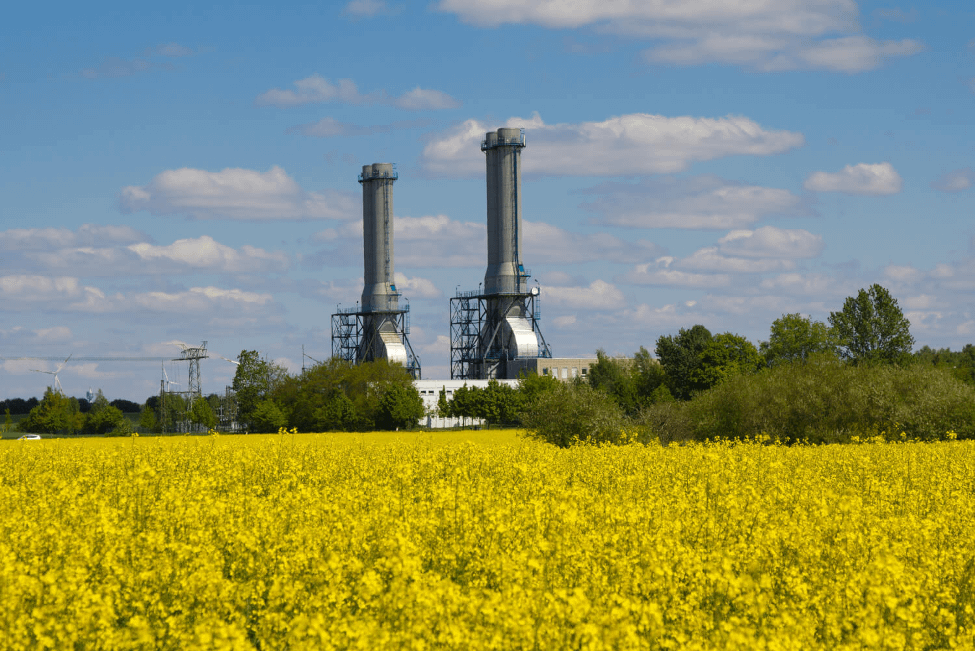Petrochemicals are chemical substances made with natural gases and refined petroleum. They are everywhere and are essential to modern societies. They include plastics, fertilizers, packaging, clothing, digital devices, medical equipment, detergents, tires, and much more. They are also present in numerous components of contemporary energy systems, such as batteries, solar panels, wind turbine blades, thermal insulation for buildings, and components for electric vehicles.
In the agricultural industry, petrochemicals play a pivotal role in all the key supply chain processes. Petrochemicals are available to enhance yields and efficiency in a variety of applications, including packaging and polyvinyl chloride (PVC) pipes. In this article, we will be looking into petrochemicals in agriculture.
What are petrochemical plants used for?
The production of petrochemicals is referred to as petrochemistry and takes place in petrochemical plants. In these facilities, chemicals derived from petroleum are processed to create petrochemical derivatives that are used as raw materials in manufacturing.
Petrochemicals which are derived from petroleum, are utilized not only in the gasoline that powers our automobiles but also in numerous facets of our day-to-day lives. Petrochemicals are used to manufacture the plastic products we use. They are also found in construction materials, medical supplies, and agricultural products, among other fields.
Petroleum is a natural substance that originates far below the surface of the Earth. It can be broken down into natural gas, gasoline, naphtha, kerosene, fuel and lubricating oils, paraffin wax, and asphalt. Additionally, they are utilized in the production of plastics such as ethylene and propylene. These procedures are the responsibility of petrochemical plants.
In Egypt, industrial groups like Anchorage Investments work in mining, beneficiation, and petrochemical production to provide such products. Their most recent petrochemical project, Anchor Benitoite, comprises the construction of a large petrochemical plant in the Suez Canal.
What are the uses of petrochemical products in the agriculture sector?
The agricultural industry heavily uses petrochemicals in harvesting, transportation, food preservation, and packaging of agricultural products. Other plastics made from petrochemicals include polyolefin, polypropylene, and ethylene-vinyl acetate copolymer are used in irrigation, silage, twine, and tubing.
Packaging is the final important step on the path that produces takes from the farm to your plate, following harvesting and transportation. Packaging innovations continue improving marketing and security while ensuring freshness and convenience. In 2016, demand for plastic containers in the U.S. was estimated to reach $32.4 billion using 14.2 billion pounds of resin.

-
Chemicals used in agriculture pesticides.
Fertilizers, pesticides, and herbicides are just a few examples of the many product categories that make up agricultural chemicals. As a result, these chemicals can cause a wide range of irritations, from mild to corrosive ones; registration through organizations like the US EPA, REACH, or Brazil ANVISA necessitates classification.
A pesticide is a substance made of chemicals that are used to repel, control, and kill animals and plants that are considered to be pests. Fungi, rodents, slugs, insects, weeds, snails, and bird mites are all examples of pests. They control agricultural pests that can harm crops and livestock by using a variety of biological agents like disinfectants, antimicrobials, bacteria, and viruses.
Pesticides are the most significant development that has conserved farmers’ labor and productivity during cultivation. In addition, they assist with safeguarding yields and land from excluded creatures or plants that filter every one of the supplements of harvests.
Let us look closely at some examples of pesticides.
Examples of pesticides used in agriculture.
Pesticides can be divided into various categories depending on their intended use or target species. Let’s name a few:
– Herbicides prevent weeds that can leach nutrients required for the growth of the crop from growing,
– Insecticides target insects’ nervous systems to limit their inhibition or breeding,
– Fungicides restrict the growth of fungi and help remove them altogether,
– Rodenticides are chemical substances used to control the inhabitation of rodents in crops.
Apart from chemical pesticides, substances derived from organic sources like botanical and mineral sources are known as organic pesticides. However, they pose less of a threat than pesticides solely based on chemicals, despite not being completely chemical-free. Examples of organic pesticides include microbial, biochemical, and botanical.
-
What is the most common pesticide used in agriculture?
Since 2001, glyphosate has been one of the most widely used pesticides, which goes by various trade names, including Roundup. It generally costs less than the herbicides it replaced and effectively controls many weed species. Glyphosate was used on a more significant proportion of soybean acres than corn acres overall, and it was used solely on a significantly larger proportion of soybean acres.
Petrochemicals and Agriculture in Egypt
In light of recent upstream oil and gas discoveries, petrochemicals are one of Egypt’s most important industrial development areas. To assist in implementing a 20-year master plan for the construction of 14 petrochemical complexes with 24 plants and 50 production units, the Egyptian Petrochemical Holding Company was established in 2022.
Egypt’s economy relies heavily on agriculture, accounting for 11.4 % of GDP and up to 23.3% of employment. The primary agricultural commodities are rice, wheat, maize, cotton, sugarcane, and horticultural crops like fruits, vegetables, and dates.
In agriculture, petrochemicals are heavily used in creating fertilizers and pesticides that help in the fast and efficient production of agricultural products and prevent pests from penetrating the crops and livestock. Petrochemicals are also used in other production processes, including transportation and packaging.
Agriculture in Egypt is a large industry serving the country’s 100 million population, making the need for petrochemicals crucial in supplying such a significant demand.
To conclude, petrochemicals are chemical substances made from crude oil and natural gases. Their production takes place in petrochemical plants. Companies like Anchorage Investments in Egypt operate in the construction of petrochemical plants, mining, and beneficiation.
